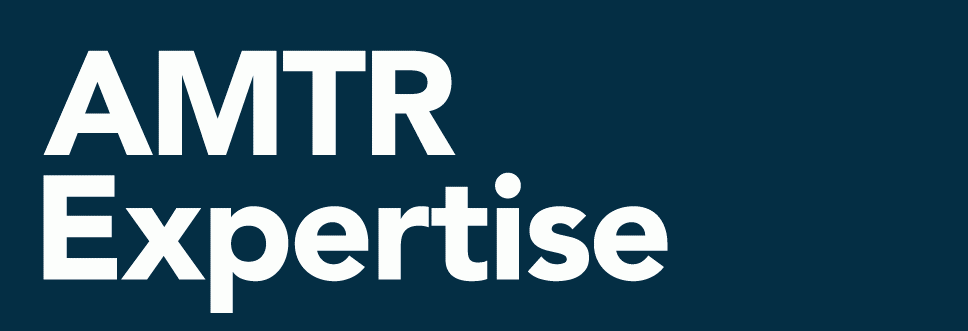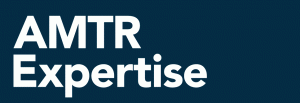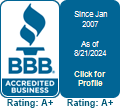SMART Auditors to the Rescue
At AMTR, we address the complexities of freight costs for our customers on a daily basis. These complexities are many and varied and consistently impact the movement and subsequent invoicing for freight. From billing errors, to innocent typos, to inaccurate interpretation of contract wording, no company is immune. Even the implementation of pre-audit and/or use of transportation management systems cannot guarantee error-free execution. Why? Problems are often unique and multifaceted, as the following examples demonstrate:
Example 1: Billing problem. A carrier’s standard rules tariff allows them to combine shipments between the same shipper and consignee on the same day. Each shipment is originally given a pro number, but the carrier may cancel one number and bill for both shipments on another. In another case, both freight bill numbers might be canceled and a master bill created. Either scenario may result in multiple payments. AMTR frequently recovers $1,000 or more per freight bill based on this issue.
Example 2: Publication errors or typos. AMTR has been instrumental in detecting missing lanes that were previously included in rate items or rates that seem to be in the wrong columns within a pricing document. We work with the carrier to get these errors adjusted in the next revision of the tariff. However, if both the carrier and the client load the wrong rates, then overcharges are virtually impossible to detect. We were able to recover over $35,000 for a client who paid the wrong rates while their lanes were being corrected.
Example 3: Inaccurate interpretation. The difference between “and” and “or” in rate condition notes can be great. An “or” statement means that two different instances can apply but many computer programs do not apply such logic correctly and humans often miss the intent of the condition statement. In one instance, the word “or” was worth a $70,000.00 overcharge claim!
The SMART auditors at AMTR know these scenarios–and countless others–well. We use expert knowledge and years of experience enabled by leading-edge IT to determine the correct freight costs for our customers. If you need a freight cost “rescue,” give us a call or email us today.
The Association of American Railroads reports that U.S. carload and intermodal traffic is continuing its upward trend in 2017, surpassing 2016 numbers by approximately 4.5%. Coal, grain and nonmetallic minerals all saw upticks in volume; however, petroleum and related products, motor vehicles and parts, and forest products fell somewhat over last year’s numbers. Canadian and Mexican carload traffic is reporting nearly 9% increases over last year, as well. Whatever the commodity, as a shipper, your freight costs are an important part of your financial landscape. Rules and regulations vary substantially by commodity, so it is important to be well informed. Here at AMTR, we have experts in every commodity. Whether you ship sand, steel, sugar or any other commodity, AMTR can help you make sure you are being charged the lowest carrier rates and billing errors are rectified quickly, boosting your bottom line.
Asking Congress for funds to increase the highway infrastructure is a top priority for trucking companies. Economic growth and increased job opportunities are necessary and important to these companies and their drivers. Mike Ducker, CEO and President of FedEx Freight, and Derek Leathers, CEO and President of Werner Enterprises, both recently testified before a Senate panel asking for more investments in the highway infrastructure “to safely and efficiently move the nation’s goods.” They both agree that there is a great need for improvement now, more than ever. There are many reasons that more support and further investments are necessary, but the primary concerns are traffic congestion, high freight demands and insufficient truck parking. These factors combined cause traffic backups and subsequently, added stress on the drivers. Most companies and organizations support the increase for federal investments and understand that these investments would be beneficial to the drivers and create safer conditions for everyone.
Have you ever given someone a task and come back later to find it was done differently than expected? This happens everywhere, from large projects like home remodeling to smaller office requests such as an email. Regardless of where the disconnect occurs, it can be frustrating—not to mention time-consuming—to redo what is necessary. Another option is to just accept the way it is and move on. Often, when providing feedback to our clients about their freight costs, this type of situation is brought to light. Processes that were created and that met certain needs at the time of implementation are discovered to be working differently than expected due to different demands and unforeseen changes. This can include IT programming, data entry and payment approval processes. Sometimes even the contract rates contain a glitch which may prevent them from being applied to loads properly.
Great ideas may be implemented and function properly, but having an objective, outside source look at every angle is crucial to identifying various misinterpretations that occur along the way. Let a team with expert freight knowledge analyze your processes today!
Multiple times per year, the National Motor Freight Classification (NMFC) manual is revised through the issuances of supplements. Some of the most impactful changes made by these updates are the cancellation or alteration of article classifications. Most supplements issued by the NMFC contain dozens of items which are canceled, added or altered. It is critical for shippers to be aware of the class changes within these supplements and when they are effective, as these changes have big repercussions on shipping costs.
Shippers may use templates for their bills of lading with pre-determined NMFC item numbers and descriptions. They may even afford blank areas for weight, dimensions, number of packages, type of package, etc. If the template contains an item which was canceled or altered by a NMFC supplement, the shipment will be vulnerable to carrier inspections. These templates may remain in error for years. When carrier billing clerks encounter a canceled classification, a generic class may be applied that is more costly. Sometimes, a density based NOI class will be utilized as a default option.
AMTR is diligent in reviewing item cancellations and updates from supplements before they become effective and affect your shipping costs. Let us assist in avoiding any costly oversights!
As a knowledge-intensive company, AMTR has to be aware of what constitutes our mission-critical knowledge, as well as the nature of it—explicit or tacit. Explicit knowledge is defined as the kind of knowledge that we can write down and share with others in instructions, manuals or databases. It can also be easily captured, stored and transmitted. Tacit knowledge, however, includes know-how, rules of thumb, experience, insight and intuition. This type is hard to capture, express or transmit. Although AMTR’s mission-critical knowledge is both tacit and explicit, tacit knowledge has always been at the core of our business model and is the essence of the “AMTR difference” and competitive advantage.
Much of the hype in the freight cost industry currently focuses on audits using automated technologies such as rate engines, transportation management systems and various payment systems. These are great tools, no doubt, but they are built based on explicit–or codified–knowledge. These tools can identify errors but only within a narrow domain as defined by the codified algorithms and parameters they have been programmed to recognize.
Shippers understand that freight is complex. Some of the complexities that drive freight cost problems include automation, system conversions, governing document accuracy, transportation knowledge loss and tighter payment deadlines. Computers cannot handle many aspects of those complexities very well, and that is where our freight audit experts come into play. Only humans can bring tacit knowledge to bear; only AMTR auditors can look at the big picture and follow up with the questions, research and knowledge required.
When it comes to freight cost audits, shippers have lots of choices. Choose AMTR and experience the tacit knowledge difference!
Genesee & Wyoming (G&W), the US railroad holding company that owns or leases 122 freight railroads globally, has signed an agreement to acquire Atlantic Western Transportation, the parent company of the Heart of Georgia Railroad (HoG). HoG operates across 219 miles of track in Georgia, linking with G&W’s Georgia Southwestern Railroad at Americus, and Georgia Central Railway at Vidalia. Once the STB approves, the acquisition should be finalized by the end of the second quarter.
Mid-January through the end of February is typically the slowest time of the year for motor carrier transportation. As we move forward into spring, carriers can expect increased volumes and shippers may experience higher rates and longer wait times. AMTR has compiled a list of tips that will both help save money on freight and make sure loads are delivered on time.
First, shop around. Get estimates from a number of carriers to ensure you are receiving the best deal for lane. Next, make sure to devote adequate time to packaging your shipment. If a carrier offers discounts for shipments moved on pallets, palletize whenever possible. Likewise, consolidate shipments when it is feasible. Also, try to arrange for shipments as soon as possible. This will save money by avoiding paying for expedited service until it is absolutely necessary. Finally, employ AMTR’s Smart Auditing© to save on your freight costs.
AMTR’s forte is discovering and recovering overcharges during after-payment freight audits. With our vast knowledge and experience with overcharge claims, we can also provide crucial insight about unidentified or duplicate payments and undercharges—information that can save shippers money! The statutes that apply for overcharge claims apply to all of these, as well.
While carriers start “spring cleaning” their accounting, they may send customers new invoices. When additional charges—for instance, an accessorial that was performed and not billed on the original invoice—are billed to customers, a request for payment must be submitted within 180 days from the invoice date, just as overcharge claims are. Check the dates before sending payment. However, if a payment was made in error and is beyond the filing time period, the law clearly allows a carrier and their client to work out any issues and
carriers can issue refunds.
Also note that on payments sent to carriers that cannot be identified, the carrier must send a notice to the payer. If there is not a response within 90 days of the notice, the carrier may consider the payment as owed for freight charges. From this point, a payer is bound by the standard claim procedures and timelines.
Do not let these time restrictions limit your opportunity to receive refunds. Let AMTR’s “Smart” auditors discover and recover your overcharged monies and educate your company through our audits!
Rate engines are a necessity in the shipping industry. However, it is also crucial to do some cleanup of these systems regularly, especially when changes are made to your route options.
Recently, during a freight cost audit, our team discovered an error that cost a shipper over a hundred thousand dollars due to an old route that was left in the rate system. Since the rates had expired under this route option and the freight had already moved, there was nothing to be done.
At AMTR, the education process is just as important as the recovery. By bringing the matter to the client’s attention, they will be able to save future monies by not choosing the incorrect route when submitting instructions to the carrier. When shippers decide in the course of business to offer traffic to competitive carriers, they should consider removing and archiving the prior carrier rate options from their rate engines. Freight cost can be negatively impacted if the expired rate is chosen. The end result would be to rely on non-negotiated public rates, which could add up quickly. Then, the risk of someone choosing the wrong option and costing hundreds of thousands of dollars could be avoided.
AMTR strives to educate shippers in these types of situations to help avoid overpaying freight in the future.














